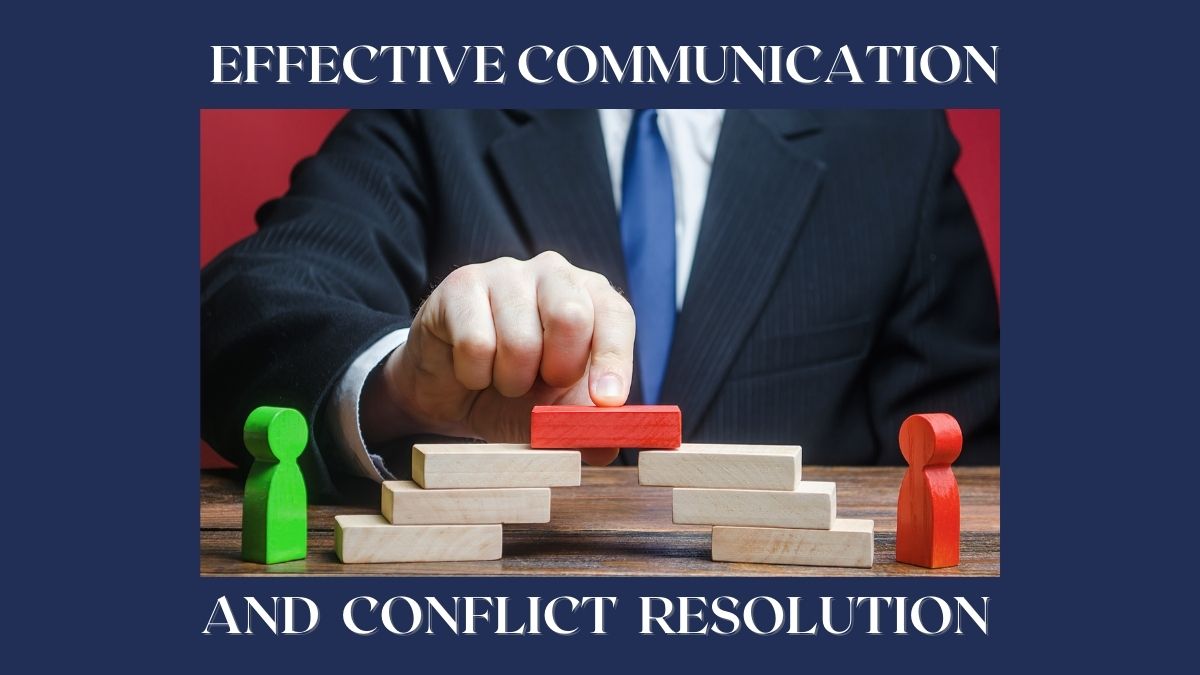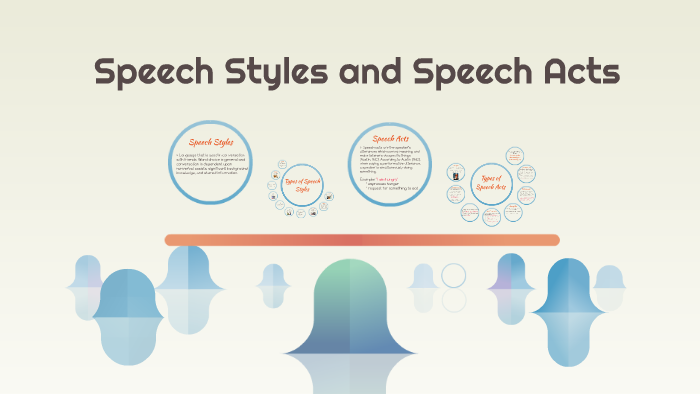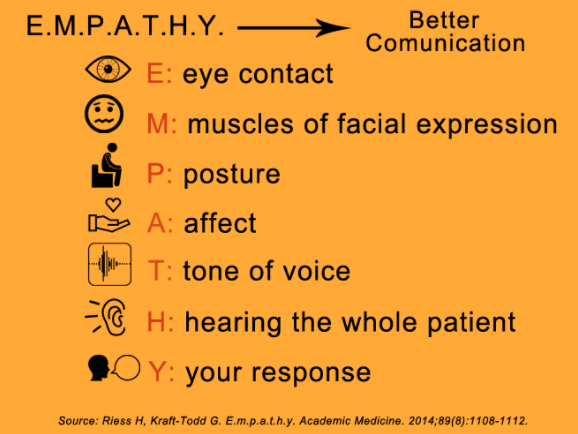Healthy Communication And Conflict Resolution: Mastering Harmony
Healthy communication builds strong relationships. Conflict resolution keeps them intact.
Both are essential in personal and professional settings. Misunderstandings can lead to tension and disputes. Learning how to communicate effectively can prevent this. It helps in expressing thoughts clearly. It also makes listening to others easier. Conflict resolution involves finding peaceful solutions.
It promotes understanding and cooperation. Together, they form the backbone of successful interactions. In a world full of diverse opinions, conflicts are inevitable. But they don’t have to be destructive. They can strengthen bonds if handled well. Healthy communication fosters an environment of trust and respect. It encourages open dialogue. People feel heard and valued. Conflict resolution strategies help address disagreements calmly. They turn potential arguments into opportunities for growth. Understanding these skills can transform your relationships. They bring harmony to your daily interactions. Let’s explore how these vital skills can enrich your life.
The Essence Of Healthy Communication
Effective communication is vital in every relationship. It forms the bedrock of understanding and trust. Without it, misunderstandings can arise, leading to conflict. Healthy communication ensures that everyone involved feels heard and respected. It is about expressing thoughts clearly and listening actively. This fosters a positive environment where individuals can resolve differences amicably.
Building Trust Through Dialogue
Trust grows when people communicate openly. Sharing thoughts and feelings honestly builds trust. People feel safer to express themselves when trust exists. This openness helps in understanding each other’s perspectives. It reduces the chances of misinterpretations and conflicts. Regular dialogue strengthens the bond between people. It shows that everyone values each other’s input.
Active Listening Techniques
Active listening is a crucial skill for healthy communication. It involves giving full attention to the speaker. Avoid distractions and focus on their words. Nod and give feedback to show understanding. Ask questions to clarify any doubts. Repeat key points to ensure you understood correctly. This technique helps in avoiding assumptions. It fosters mutual respect and understanding.
Identifying Conflict Triggers
Understanding conflict triggers can improve communication. It aids in resolving disputes effectively. Identifying what causes disagreements helps in avoiding them. Recognizing emotional responses is a crucial step in this process.
Common Causes Of Disputes
Miscommunication often leads to conflicts. People may misunderstand each other’s words or intentions. Different values or beliefs can also cause friction. These differences may create tension in relationships. Unmet expectations frequently result in disagreements. When expectations aren’t clear, it leads to frustration. Limited resources can spark disputes as well. People might feel they are not getting their fair share.
Recognizing Emotional Responses
Emotions play a big role in conflicts. Anger is a common reaction to disagreements. It often clouds judgment. Fear might arise from conflicts too. It can cause people to avoid addressing issues. Sadness might occur when disputes hurt relationships. Recognizing these emotions is essential. It helps in managing them effectively. Awareness of emotions can prevent escalation. It allows for calmer, more productive discussions.
Strategies For Conflict Resolution
Effective conflict resolution relies on open dialogue and active listening. Encouraging understanding reduces tension. This approach fosters stronger relationships and mutual respect. Clear, simple communication is key.
Conflict is an inevitable part of human interaction, but it doesn’t have to be a negative experience. Healthy communication and conflict resolution can actually strengthen relationships. How you handle disagreements can make all the difference. Here are some practical strategies to navigate conflicts effectively and improve your relationships.Collaborative Problem Solving
Collaborative problem solving is about finding a solution that satisfies everyone involved. It’s not just about getting your own way; it’s about working together. Picture a time when you and a friend disagreed on what to do for a day out. Instead of arguing, you both listed activities you enjoyed and found a way to combine them. This approach encourages creativity and fosters mutual respect. Start by listening actively. Show empathy by acknowledging the other person’s perspective. Ask open-ended questions that invite discussion rather than defensiveness. For instance, “What do you think would work for both of us?” This shifts the focus from individual needs to joint solutions. Finally, be open to adjusting your initial stance. Flexibility can lead to unexpected outcomes that satisfy all parties. It’s rewarding to see how a shared effort can solve even the toughest issues.Negotiation And Compromise
Negotiation is a skill that can transform conflict into a win-win situation. It’s about finding middle ground where both parties feel heard and respected. Imagine you and a colleague disagree on a project timeline. Instead of digging in your heels, consider what aspects of the timeline are most important to each of you. Start the negotiation by clearly stating your needs and concerns. Encourage the other person to do the same. Use “I” statements to express your feelings and avoid blaming language. This helps keep the conversation constructive. Compromise is key. Ask yourself, what am I willing to give up to reach an agreement? Be prepared to make concessions while ensuring your core needs are met. This might mean adjusting a deadline or altering the scope of a project. The aim is to reach a solution that both parties can accept. Healthy communication and conflict resolution are crucial for maintaining strong relationships. By practicing these strategies, you can handle conflicts with confidence and grace. What strategies will you try in your next disagreement?
Credit: fastercapital.com
Tools For Effective Communication
Effective communication is crucial for healthy relationships. Understanding how to communicate can prevent misunderstandings and resolve conflicts peacefully. The right tools can make communication clearer and more productive. Explore two essential communication skills: nonverbal communication and empathy.
Nonverbal Communication Skills
Body language speaks louder than words. A smile can show warmth and openness. Crossed arms may signal defensiveness or discomfort. Facial expressions reveal emotions, helping others understand feelings. Eye contact shows interest and confidence. It strengthens trust and connection. Gestures can emphasize points and express enthusiasm. Posture impacts perception; slouching might imply disinterest. Listening involves more than hearing words. It requires observing nonverbal cues. Nonverbal skills enhance understanding and improve interactions.
The Power Of Empathy
Empathy builds strong bonds. It involves putting yourself in someone else’s shoes. Understanding feelings fosters compassion and support. Listening attentively shows you care. Reflecting back what someone says confirms understanding. Avoid making judgments; focus on feelings shared. Empathy encourages open dialogue. It helps resolve conflicts by addressing emotions. Respond with kindness and patience. Empathetic communication creates a safe space for sharing. It enhances relationships by showing you value others’ perspectives.
Maintaining Harmony In Relationships
Healthy communication builds strong relationships. Listening actively and expressing feelings clearly prevents misunderstandings. Address conflicts calmly to find solutions together. This approach nurtures trust and understanding, fostering lasting harmony.
Maintaining harmony in relationships is not just about avoiding disagreements. It’s about ensuring that the bonds you share with others are nurtured and respected. When communication flows smoothly and conflicts are handled with care, relationships thrive. Have you ever wondered how a simple miscommunication can lead to a much larger issue? By focusing on clear communication and effective conflict resolution, you can create a more peaceful and understanding environment in all your relationships.Setting Boundaries Respectfully
Setting boundaries is crucial for any healthy relationship. It’s not about pushing people away, but about creating a safe space for both parties. When you set boundaries, you teach others how you wish to be treated, which can prevent misunderstandings. Consider how you feel when someone respects your boundaries. It fosters trust and mutual respect, doesn’t it? Share your needs openly, using “I” statements, like “I need some time alone to recharge.” This approach minimizes defensiveness and encourages understanding. Remember, boundaries are not static. They evolve as relationships grow. Regular check-ins with your loved ones can ensure that everyone is still comfortable and respected. Are your boundaries still working for you?Continuous Improvement In Interaction
Improving communication is an ongoing process. Think about a time when a simple change in your communication style improved a relationship. Small adjustments can have a big impact. Active listening is a key component. Are you truly hearing what the other person is saying, or just waiting to respond? Show empathy and validate their feelings. Acknowledging someone’s emotions can defuse tension and build trust. Feedback is another tool for improvement. Constructive feedback, given and received with an open mind, can strengthen bonds. Ask yourself, how can I communicate better next time? Continuous reflection on your interactions can lead to more harmonious relationships. Maintaining harmony in relationships requires effort and willingness to grow. By setting respectful boundaries and continuously improving your interactions, you can foster deeper connections and resolve conflicts with grace. What steps will you take today to enhance your relationships?
Credit: kapable.club

Credit: www.therisejourney.com
Frequently Asked Questions
What Are The 4 Communication Skills For Conflict Resolution?
The four communication skills for conflict resolution are active listening, assertiveness, empathy, and clear articulation. Active listening involves understanding the speaker. Assertiveness ensures expressing needs confidently. Empathy involves recognizing others’ feelings. Clear articulation means conveying messages precisely. These skills foster effective conflict resolution and mutual understanding.
What Are The 5 Conflict Resolution Strategies?
The five conflict resolution strategies are: Competing, Collaborating, Compromising, Avoiding, and Accommodating. Each strategy addresses conflicts differently, focusing on assertiveness and cooperation levels. Understanding these strategies can help effectively manage disputes in various situations, promoting healthier relationships and communication.
How Does Communication Help In Conflict Resolution?
Effective communication clarifies misunderstandings and fosters understanding. It encourages open dialogue and builds trust. Active listening and expressing needs reduce tension, leading to collaborative solutions. Communication bridges gaps and resolves conflicts by promoting empathy and mutual respect.
Conclusion
Effective communication builds strong relationships. It helps resolve conflicts peacefully. Practice listening to understand others better. Speak clearly to express your thoughts. Avoid blaming or assuming. Stay calm during disagreements. Focus on finding solutions together. Remember, every relationship has challenges.
Communication and resolution skills can improve them. With patience and understanding, conflicts become opportunities for growth. Keep practicing these skills daily. They lead to healthier and happier interactions. Aim for open and honest conversations. They strengthen trust and connection. Prioritize healthy communication for a peaceful life.
Embrace it as a lifelong journey.



